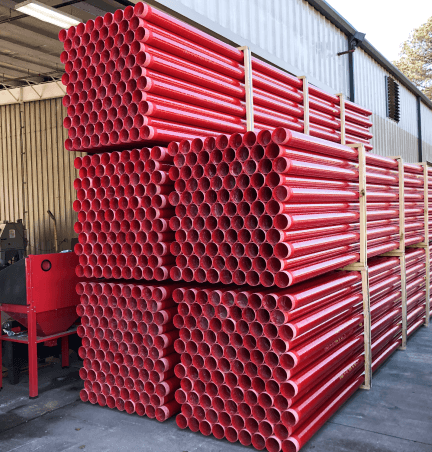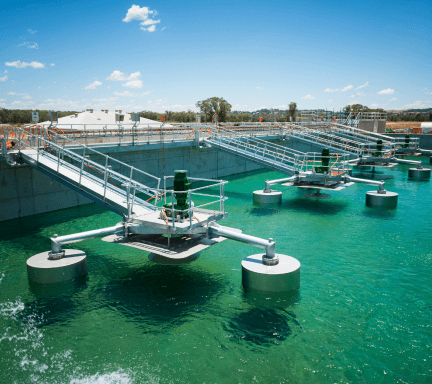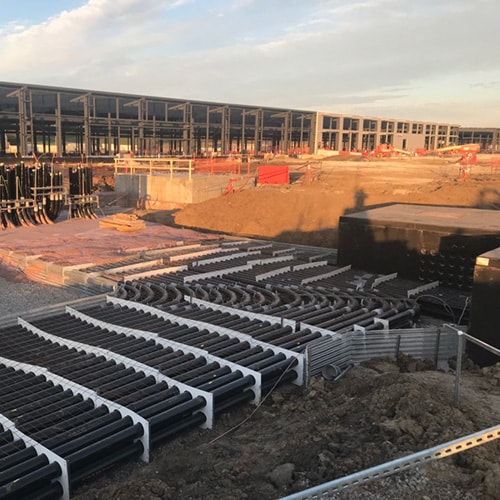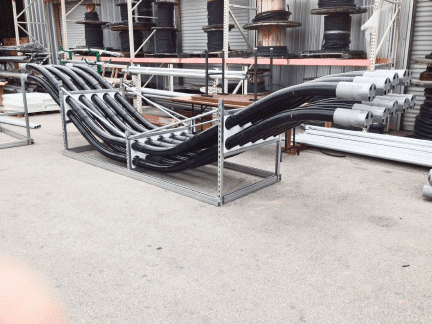Want fewer headaches on the job site? Fiberglass conduit might be just the relief you need. It has helped many customers facilitate projects in applications like data centers and transportation (bridges, transit and roadway tunnels) with ease.
What is it about fiberglass conduit that contributes to project success? One contributing factor is the lightweight nature of the conduit that has engineers and project owners realizing favorable outcomes.
Lightweight conduit lowers overall project costs by reducing the costs of labor. It is able to do this because better portability in the field contributes to a smoother, easier installation that takes less time. Project owners also tell us that they prefer fiberglass conduit on bridges and other raised platforms because it does not add as much weight to the overall load of the bridge.
So let’s see exactly how different conduit types compare in weight across the board. One hundred feet of 4” SW RTRC conduit weighs 72 pounds while the same 100 feet of SCH 40 PVC weighs 231 pounds. This is three times the weight of Champion Fiberglass conduit.
Next, aluminum conduit tips the scales at 350 pounds for the same 100-foot length of conduit. Aluminum conduit is almost five times the weight of Champion Fiberglass conduit.
And if you thought SCH 40 PVC and aluminum were heavy, just wait. Galvanized rigid steel weighs in at 1030 pounds for the same width and length of conduit.
But that’s not the heaviest conduit by any means. When comparing fiberglass conduit vs. PVC-coated steel, PVC-coated steel carries the distinction of being the heaviest conduit in our comparison at 1089 pounds for 100 feet of 4” diameter conduit. That’s 15 times the weight of Champion Fiberglass conduit.
Finally, in addition to being light, fiberglass conduit contributes to project success with its strength and durability. It is corrosion-resistant to over 70 chemicals, making it ideal to withstand UV light and harsh weather conditions.












